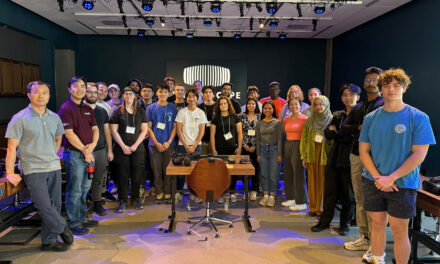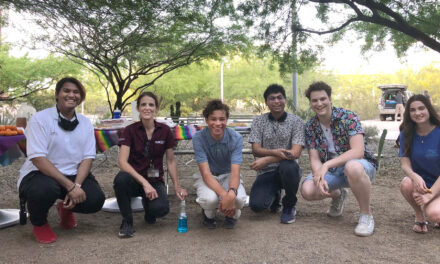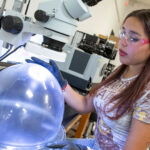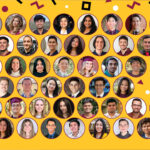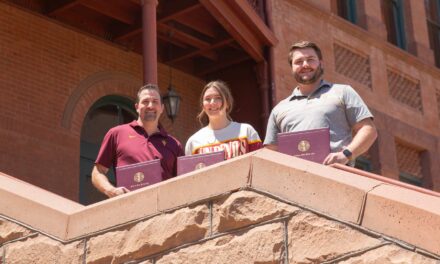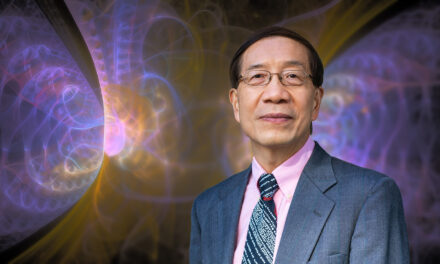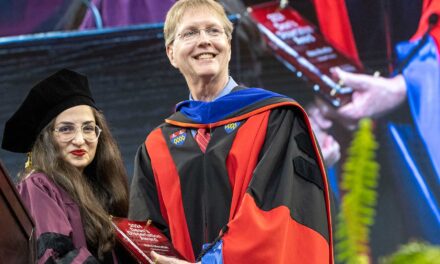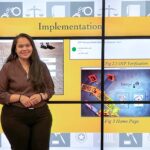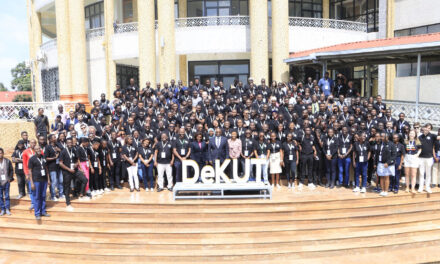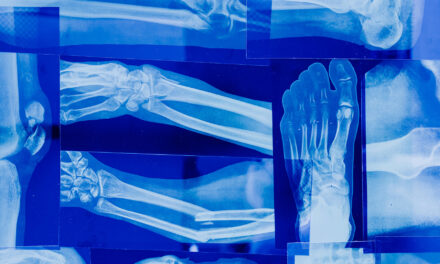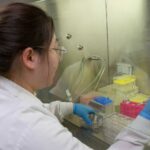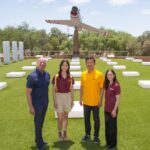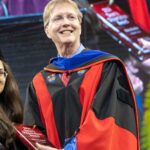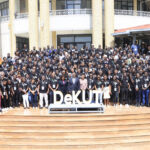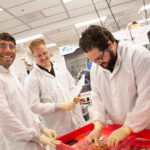
Veteran Evan Benson’s injuries threatened his college dreams
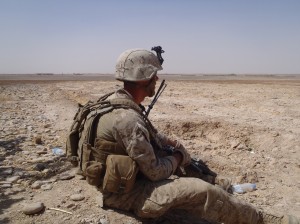
Evan Benson on a cool September morning in Helmand Province, Afghanistan, resting his feet after a sleepless night as he waits for an Explosive Ordnance Disposal team outside a local Afghan’s home where he had just had tea. Photo courtesy of Evan Benson.
For Evan Benson, the U.S. Marine Corps was an organization of honor, a place to express his patriotism after 9/11 and a way to redeem a squandered opportunity.
Today, after deployments in Iraq and Afghanistan and a traumatic brain injury, Benson has finished his bachelor’s degree in civil engineering, with a geotechnical emphasis, and is completing work for his master’s degree through the accelerated 4+1 program at the Ira A. Fulton Schools of Engineering at Arizona State University.
He wasn’t always sure he could do it.
Benson grew up in Mansfield, Massachusetts. He was good at math and science, and enrolled in engineering at the University of Texas at Austin.
But he wasn’t focused.
He returned to Mansfield, where he worked two jobs while finishing a bachelor’s degree in earth science at Bridgewater State University.
“I saw my good friends from high school going on multiple deployments,” Benson said. “I felt selfish. I knew I squandered my opportunity in Texas.”
So Benson joined the U.S. Marine Corps Reserve and went to boot camp.
He was deployed to Anbar Province in Iraq, where he was the man on top of the vehicle with a machine gun during combat patrols.
Iraq was relatively quiet, and Benson returned to Bridgewater State, but the transition was difficult.
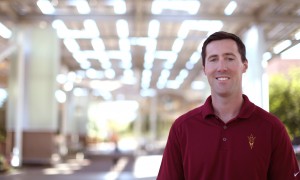
Evan Benson on the Arizona State University campus, where he is finishing his master’s degree in civil engineering. Photo by Judy Nichols
“Students would complain about not having coffee, things that just didn’t matter to me,” he said.“I was used to being glad I made it home that day.”
He was called up for duty again, this time for Afghanistan. It would not be as quiet. His unit was sent to Helmand Province, where Benson was an infantry section leader of a mounted weapons company.
On his first patrol, the lead vehicle hit an improvised explosive device, or IED.
On Nov. 25, 2011, Benson’s vehicle hit one.
“I don’t remember much,” Benson said. “I remember being pulled out of the vehicle, then being on the helicopter, then being at the hospital.”
He had spoken to his mother the day before for Thanksgiving. He called her again from the hospital.
“She cried,” Benson said. “I told her I was all right. It was a rough week.”
Benson said everyone in his unit survived that explosion. Benson suffered multiple injuries, including a traumatic brain injury.
“I had memory loss. I would black out, shake, have nausea, light sensitivity, eye twitches,” said Benson, who spent eight months in therapy.
“My plan had always been to go back to school, but I didn’t know if I would be able to. It’s really a waiting game to see how your brain heals.”
Benson said sometimes he’ll hear a name three times and still can’t remember. He has coping mechanisms he uses, and he studies in a repetitive, systematic way to give his brain as much of a chance as possible to remember.
“I used to be able to wing it,” Benson said. “I’d just read and go to class. Now, I can’t. I have to be organized.”
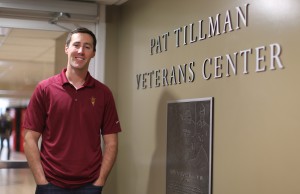
Evan Benson at the Pat Tillman Veterans Center, where he help process benefits for some of the 4,000 veterans on ASU’s campuses. Photo by Judy Nichols
Benson chose ASU because of the Pat Tillman Veterans Center, founded in memory of Tillman, an ASU and Arizona Cardinals football star who gave up his career to enlist after 9/11. Tillman was killed in Afghanistan, in what later was revealed to be friendly fire.
“Pat Tillman’s legacy has serious weight with veterans,” said Benson, who remembers watching Tillman’s funeral. “The center was integral in helping with my transition.”
Benson applied for a job at the Tillman Center and was hired to help process benefits for some of the 4,000 veterans on ASU’s campuses. He received money for tuition, housing and books as part of his federal benefits, and was chosen for a Veterans Education Fund Scholarship.
He enrolled in the Fulton Schools of Engineering, where he says professors have been extremely helpful and positive.
Edward Kavazanjian, a professor in the School of Sustainable Engineering and the Built Environment, helped Benson get an internship with Haley & Aldrich, a consulting firm based in Boston that specializes in underground engineering, environmental science and management consulting.Benson hopes to get a job there when he graduates in May.
Benson said he continues to work hard at studying, and thinks his military experience gives him an edge with group projects.
“I know how to organize people in groups,” he said. “I can say, ‘You’re good at this. And you’re good at that. So let’s break this down and come up with a plan.’ I’m the gel.”
He wants other veterans to know there is help. “You can’t do it on your own,” he said. “Vets tend to close themselves off, but at the Tillman Center there are people with similar backgrounds, who have been through similar situations. They can help you get through school.”
Benson, who received a Purple Heart, said his wounds were life-changing.
“It shapes who you are,” he said. “It knocks you off the bike. But you see so many others who have been through a lot, and they’re taking it head-on. It’s inspiring.”
Media Contact:
Judy Nichols, [email protected]
(480) 965-9248
Ira A. Fulton Schools of Engineering






